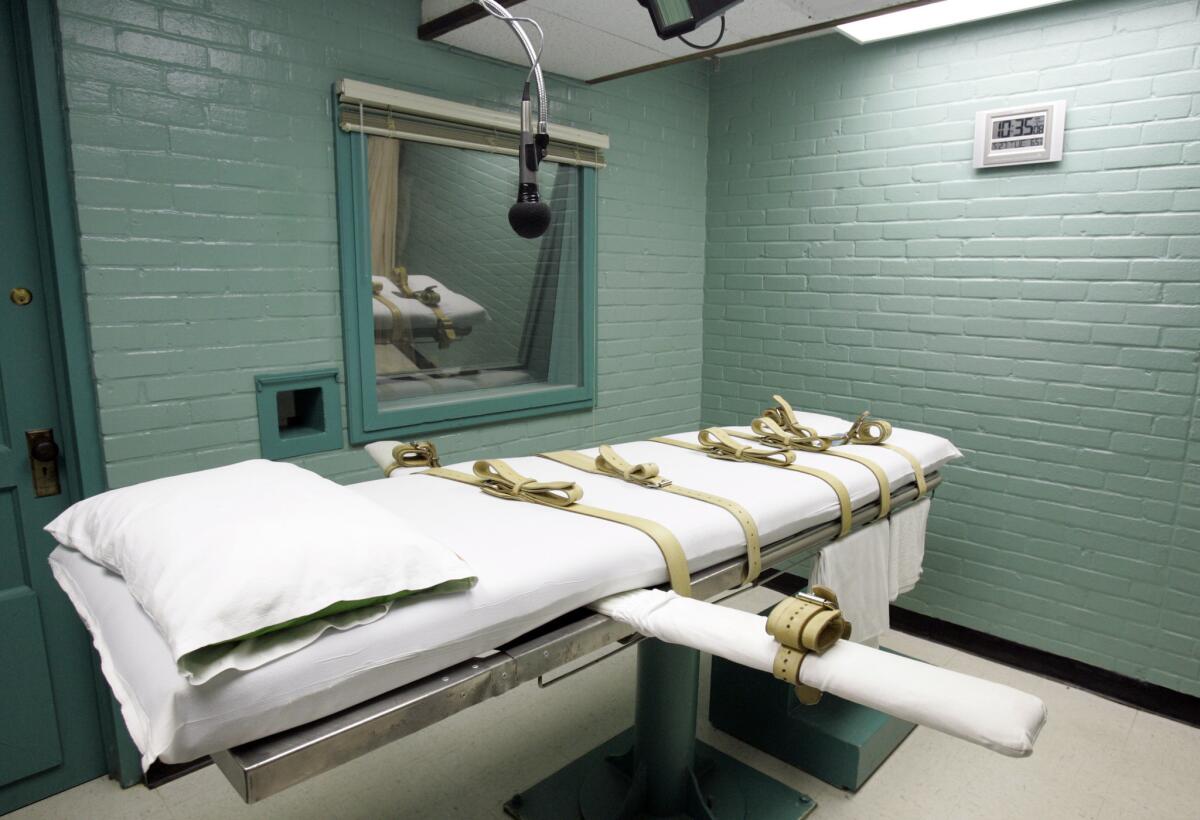Citing Oklahoma case, lawyers seek delay in scheduled Texas execution

- Share via
Lawyers for condemned Texas inmate Robert James Campbell sought to delay his scheduled execution next week, citing some of the same arguments unsuccessfully used before the botched execution of an inmate in Oklahoma.
In a filing in U.S. District Court for the Southern District of Texas on Tuesday, attorney Maurie Levin asked for the stay to force Texas to disclose the source and related information about the drug to be used to execute Campbell, who is scheduled to die May 13. He was convicted in the 1991 abduction and murder of a Houston bank teller.
“The botched execution in Oklahoma has made clear that the significant risk of a tortuous death is a very real threat when states aren’t required to facilitate executions with transparency, accountability and disclosure of the sort sought -- and denied -- in Oklahoma,” Levin wrote.
Oklahoma used a three-drug cocktail when it tried to execute Lockett on April 29. During the execution, Lockett writhed in pain and made noises until the execution was stopped. He died of a heart attack 43 minutes after the execution process began, said Oklahoma officials, who blamed a blown vein.
Oklahoma is investigating how the execution went awry, including whether the drug cocktail or the administration of the drugs was at fault.
Lockett’s defense attorneys had sought information about the origin and strength of the drugs used, but were rebuffed by Oklahoma. Like many states, Oklahoma has been forced to use new procedures and suppliers as it has become more difficult to find the needed drugs amid international protests.
Texas uses a different drug protocol -- a single lethal injection. But Levin said in court papers that Texas’ secrecy was still a problem.
“The fact that Oklahoma attempted to execute Mr. Lockett using a different protocol that did not include the chemical [compounded pentobarbital] called for by Texas’ current protocol does not obviate a risk that derives primarily from the secrecy of the entire process -- not the individual drug that might be used in one execution vs. the next,” states the lawsuit.
A spokesman for the Texas attorney general had no immediate comment on the suit.
More to Read
Sign up for Essential California
The most important California stories and recommendations in your inbox every morning.
You may occasionally receive promotional content from the Los Angeles Times.














